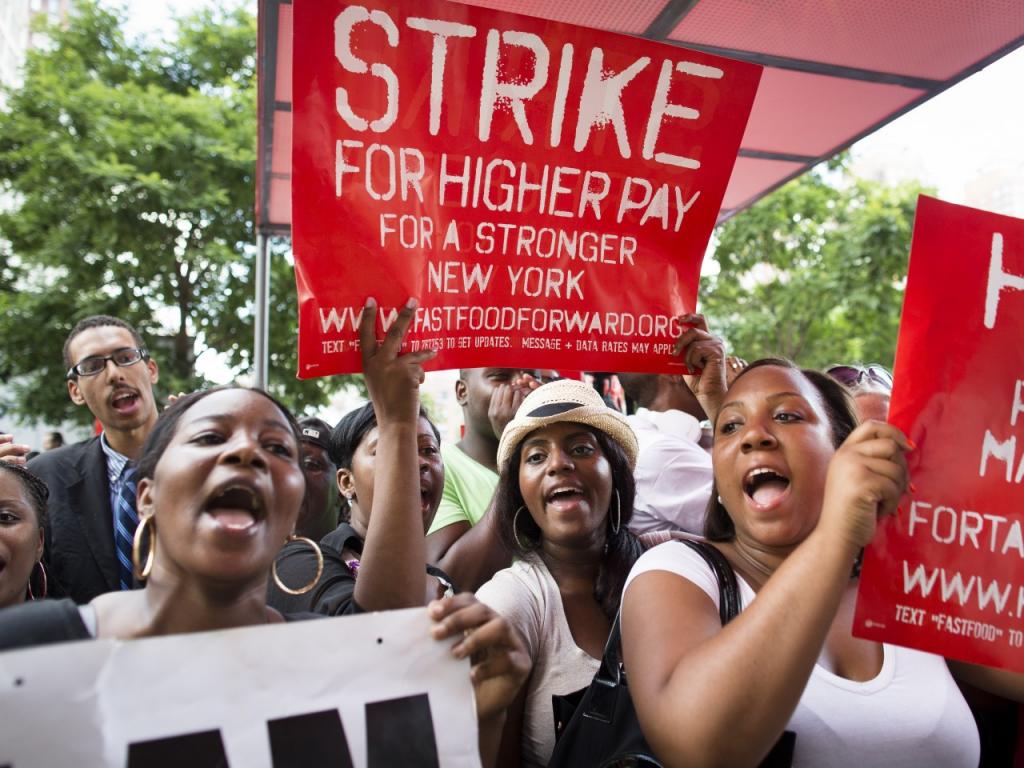They have taken untold millions that they never toiled to earnThe Union Makes Us Strong
But without our brain and muscle not a single wheel can turn
We can break their haughty power, gain our freedom when we learn that
The union makes us strong -- Solidarity Forever, lyrics by Ralph Chaplin
 Anarcho-syndicalism calls for an anarchist revolution built around left-wing labor unions that will organize the economy through democracy after the overthrow of capitalism. "Syndicalism" by itself is a group of economic theories that advocate labor union organization of an economy, but "anarcho-syndicalism" specifically calls for the immediate overthrow of the state and the wage system.
Anarcho-syndicalism calls for an anarchist revolution built around left-wing labor unions that will organize the economy through democracy after the overthrow of capitalism. "Syndicalism" by itself is a group of economic theories that advocate labor union organization of an economy, but "anarcho-syndicalism" specifically calls for the immediate overthrow of the state and the wage system.Historically, anarcho-syndicalism has been the most powerful of all anarchist traditions. It was central to the anarchist zones that flourished during the Spanish Revolution before being crushed by fascists (and Stalinists). Anarcho-syndicalism is the central ideology of the Industrial Workers of the World and was a popular strain in the U.S. during the Great Depression, helping popularize such heroes as Eugene V Debs and Emma Goldman. World-renowned linguist and political activist Noam Chomsky is a well-known anarcho-syndicalist.
Practically every building of any size had been seized by the workers and was draped with red flags or with the red and black flag of the Anarchists; every wall was scrawled with the hammer and sickle and with the initials of the revolutionary parties[...] Every shop and café had an inscription saying that it had been collectivized[...] Waiters and shop-walkers looked you in the face and treated you as an equal. Servile and even ceremonial forms of speech had temporarily disappeared. -- George Orwell, Homage to Catalonia
Anarcho-syndicalism uses labor unions to organize a revolution, building the revolutionary consciousness of the workers, bringing them together, and building solidarity with the workers of the world by unifying them to fight for their interests while capitalism still exists.
Once a revolutionary period occurs, the unions are ready to act. The strength of this idea showed itself in the Spanish Revolution. Because the anarcho-syndicalists had already been making decisions democratically and organizing the overthrow private property and the wage system, they were able to quickly overtake the economy and run it democratically. While the figures are hard to pin down, the local records suggest that productivity rose sharply under anarcho-syndicalism.
Anarcho-syndicalism believes that after the revolution, worker and general citizen unions become the decision making groups in society. These groups elect delegates (always able to be recalled) who help organize the society at large.
Wildcat Strikes: the Fight for Good Unions
So maybe you think unions are just corrupt, greedy clubs ran by mobsters, and maybe you think that isn't the best group to lead a revolution. Anarcho-syndicalists are not naive, they know that most unions are not capable or willing to lead revolutions, and that is what led to Wildcat strikes.
A "Wildcat strike" is a strike action by unionized workers who plan, organize, and lead the strike on their own, without the union bosses. This accomplishes several things all at once: it improves worker conditions when the strike succeeds, it puts power in the hands of the workers, it shows the uselessness of union bosses, and it makes for good practice in group decision making and solidarity.
Further Reading:

